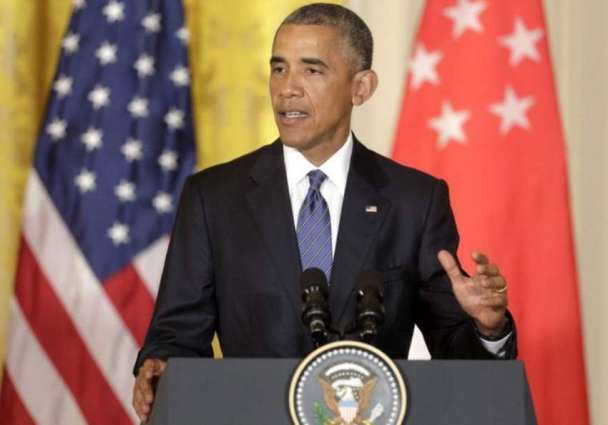March marks the 10th anniversary since the Russian reset, an attempt by then US President Barack Obama's administration to achieve rapprochement with Moscow in 2009, and experts told Sputnik why the world powers had ultimately failed to improve relations back in the day
MOSCOW (Pakistan Point News / Sputnik - 07th March, 2019) March marks the 10th anniversary since the Russian reset, an attempt by then US President Barack Obama's administration to achieve rapprochement with Moscow in 2009, and experts told Sputnik why the world powers had ultimately failed to improve relations back in the day.
In March of 2009, Russian Foreign Minister Sergey Lavrov and then-US State Secretary Hillary Clinton met in the Swiss town of Geneva. At the meeting, Clinton has presented a red button as a symbol of resetting historically troubled relations. However, the Russian word for reset - "perezagruzka" - has been misspelled and instead read "peregruzka," which in English stands for "overload." Despite the embarrassing mistake on the US behalf, the top diplomats have pushed the button, hoping that the symbolic act would lead to long desired thaw in the Russian-US ties.
"The 'reset' has not failed, but just did not receive further development. Why? There is hardly a simple answer to this question. Perhaps the parties were not ready for a 'new way of thinking' in order to qualitatively revise the basics of bilateral relations and abandon the logic and mentality of the Cold War, " former Russian Foreign Minister Igor Ivanov said.
"Perezagruzka" at the first stages did have its positive effect as contacts between Moscow and Washington became more frequent and the sides even managed to sign the new Strategic Arms Reduction Treaty (New START) in 2010, the former minister noted.
However, the United States right from the start had hidden intentions behind their "reset agenda," according to Andrei Sidorov, the head of the Department of International Integration and International Organizations at the school of World politics, the Lomonosov Moscow State University.
After Russian President Vladimir Putin assumed power in 2000, Washington understood that "Russia did not behave the way they wanted," the academic noted.
"Most have viewed this [the Russian reset] as some kind of maneuver that would retain a group of people close to their [US] way of thinking that would of course make certain concessions," Sidorov said.
The reset did not last long. Many believe that the rapprochement started to go down in March 2011, when the coalition of NATO members and other states launched a military intervention in Libya, which Russia did not support as it led to the ouster and murder of Libyan longtime leader, Muammar Gaddafi. Libya remains mired in domestic crisis to this day.
The tensions between the United States and Russia further escalated after Clinton supported the protests of opposition in Russia the same year.
But it was the Ukrainian conflict that led to a full scale crisis in relations between Moscow and Washington. The Western countries accused Moscow of involvement in the conflict and did not recognize Crimea's reunification with Russia following a referendum on the peninsula.
The United States alongside the European Union have introduced a set of sanctions against Russia over the Ukrainian crisis. Moscow has repeatedly denied the allegations and reacted with countermeasures against the Western nations.
The Russian-US ties are not expected to improve in the near future and instead will see a decay of the arms control system achieved during the brighter times in their relations, according to Alexey Arbatov, the head of the Center for International Security of the Primakov National Research Institute of World Economy and International Relations.
"The New START treaty was concluded during the 'reset.' But, unfortunately, it will not be renewed. And there is little chance that a next START treaty would follow," the political scientist noted.
The accord has been effective since February 5, 2011 and will expire in 2021, with an option of being extended for five years.
Russian Deputy Foreign Minister Sergey Ryabkov said at the Munich Security Conference on February 16 that there was a growing risk that the US administration was dragging out time by refusing to engage in a genuine dialogue on the New START so that Moscow and Washington would fail to extend the accord before its expiration.




